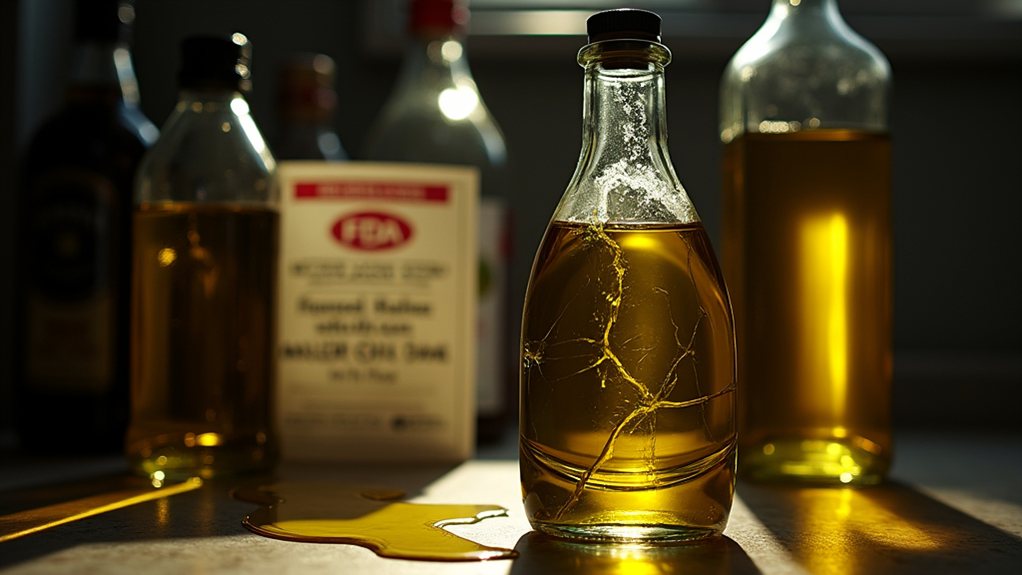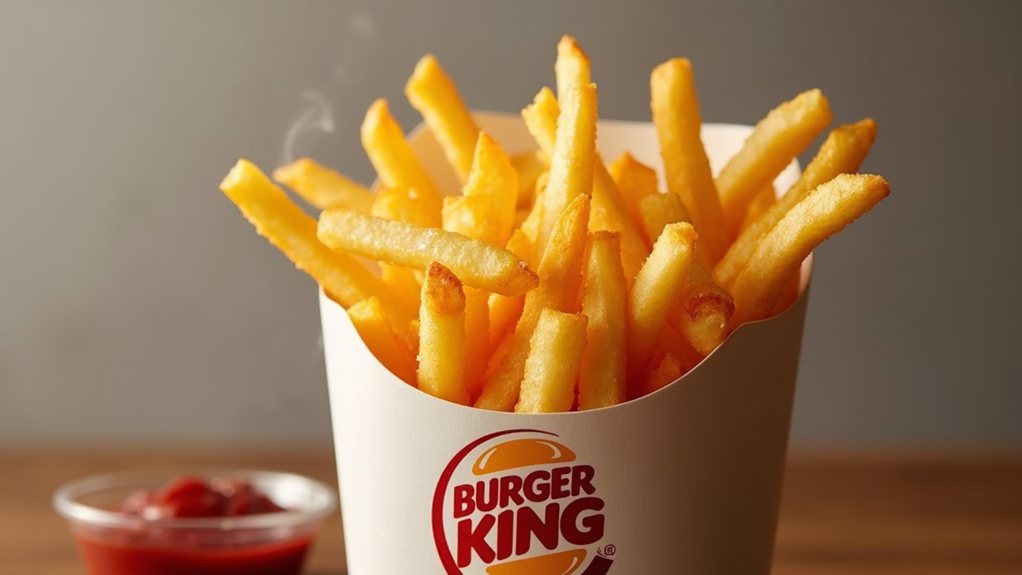Americans are uncovering an unsettling reality about their kitchen staples. Recent recalls of popular cooking oils have exposed troubling safety gaps, from chemical contamination to packaging defects that compromise quality. Major brands once trusted for family meals now face scrutiny as regulatory bodies investigate how potentially harmful products reached store shelves. The incidents raise significant questions about inspection protocols, corporate responsibility, and what consumers should know before their next grocery trip.
Safety Concerns Behind Major Oil Recalls

While consumers often focus on the freshness and flavor of cooking oils in their pantries, the safety of these kitchen staples has come under scrutiny in recent years due to a surprising number of product recalls. Companies like Primal Kitchen and Deoleo USA have found themselves at the center of these safety concerns, with thousands of products pulled from store shelves across the nation. The reasons behind these recalls vary widely, from fragile glass containers that shatter unexpectedly to more serious issues like pesticide contamination and premature oxidation.
The FDA and USDA serve as watchdogs in this domain, classifying recalls into three categories based on their potential health risks. When Primal Kitchen recalled over 2,000 cases of avocado oil due to defective glass bottles, it highlighted how even packaging issues can pose significant hazards to consumers. The FDA posted a formal recall notice after the company identified issues with avocado oil leaking in shipping containers. More alarming were the Deoleo USA recalls, where olive oils contained unauthorized pesticides that could potentially cause harm with regular consumption. Foreign object contamination, like metal fragments or plastic pieces, accounts for 11.4% of recalls nationwide, presenting a serious hazard when found in cooking oils.
Perhaps most troubling are cases involving mislabeling and adulteration, as seen in the Rubino Olive Oil scandals. Consumers purchasing what they believed was pure olive oil actually received products containing cheaper, sometimes harmful substitutes. Such deception not only violates trust but can trigger allergic reactions in unsuspecting customers who rely on accurate ingredient lists.
Food fraud poses double danger: compromising consumer trust while putting health at risk through hidden ingredients.
When recalls occur, companies typically offer refunds or replacements, attempting to maintain consumer confidence in their brands. However, the economic impact extends beyond immediate financial losses, as market trust can take years to rebuild. For consumers across major markets like California, these recalls mean more than just disposing of a kitchen item – they represent a breach in the safety system they rely on daily.
While regulatory bodies continue to strengthen oversight, consumers are increasingly urged to stay informed about product recalls through public awareness campaigns. This vigilance, combined with prompt action from manufacturers and regulators, forms the foundation of a safer food system where cooking oils can be both flavorful and trustworthy.









